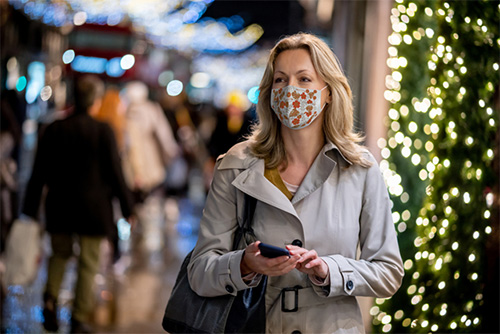Authored by Dr. Sharon Stills, NMD
You probably know melatonin as the hormone that helps you get a good night’s sleep. But you may be surprised to learn it can support your immune function in a very important way.

In recent years, considerable research has emerged on this relationship. We’ve long known that melatonin, a hormone produced in the brain’s pineal gland, regulates the body’s sleep-wake cycles. But its interaction with the immune system has not gotten the attention it deserves. It’s a fascinating connection, and partly explains why sleep is such a vital tool for immune system repair.
So, as you do everything you can right now to support and strengthen your immunity, here are some findings about melatonin and immune function that I think you’ll want to know about.
Melatonin helps flip the immune system’s “on switch”
We now know that our white blood cells, the main player in the body’s immune function, have melatonin receptors. Melatonin appears to be a factor in “turning on” the activity of T-cells, a special type of white blood cell, and enhancing the function of T-cell helper lymphocytes.
Melatonin provides immune cells with antioxidant protection
Melatonin is a special kind of “clean” antioxidant, meaning that it’s able to protect cells without triggering production of free radicals. This appears to be important for immune cells, including phagocyte cells. Think of phagocyte immune cells as little Pac Men traveling through your bloodstream gobbling up pathogens. Studies show that melatonin helps to optimize phagocyte action.
Melatonin protects aging immune systems
Most of us will experience an age-related dip in immune function beginning somewhere in our 30s or 40s. Around the same time, the body’s melatonin production starts to drop. Are these two events connected? The research so far points to yes.
In one study, researchers gave aging mice a melatonin supplement overnight and found that mice began to produce greater numbers of immune molecules. Researchers were able to predict immune function based on the amount of melatonin in the mice’s bloodstreams just before bedtime. This suggests that taking a melatonin supplement could make a difference for older adults trying to boost their immunity.
This connection between age, immunity and melatonin levels makes so much sense to me because children, who are much less likely to have severe COVID-19 symptoms, have as much as 10 times the amount of natural melatonin production as older adults. Now, there are also other factors that give children healthier immune function, but this may go a long way toward explaining why youth is so protective when it comes to coronavirus risk.

Melatonin offers special help for lung injury
Recent research has shown that melatonin binds to NLRP3 inflammasomes — the receptors associated with COVID-19’s attack on the lungs. By getting to these receptors first, melatonin may offer help in blunting injury to lungs from the coronavirus. Isn’t this an exciting find?
The journal Life Sciences published research on March 23 (to be included in the June 2020 print edition) that explores this connection in detail. Here is the summary of what researchers, from the Chinese Academy of Medical Sciences and University of Texas at San Antonio, had to say: There is significant data showing that melatonin limits virus-related diseases and would also likely be beneficial in COVID-19 patients. Additional experiments and clinical studies are required to confirm this speculation.
All I can say is, WOW!
If you’re anywhere near Arizona, please know that you can find me shouting the news about this study from my rooftop. This deserves to be more widely talked about.
These links between melatonin and immunity are not surprising to anyone familiar with prior research on this hormone. For example, we’ve known for a long time that low melatonin levels may be a reason why people are more likely to get sick when they are jet-lagged. It also helps to explain why getting a good night’s sleep helps to boost our immune systems — it’s when our melatonin levels are naturally at their highest! Here’s a tip for enhancing your body’s natural melatonin production: sleep in a very dark room. No night lights or glowing screens allowed!
I have long prescribed melatonin for my patients as a natural sleep aid and antioxidant. For my patients recovering from cancer, I tend to prescribe a higher dose, but for general support, I tend to recommend 3-6 mg per night. I am a doctor, but I am not YOUR doctor, so please talk about these findings with your own practitioner to get a supplementation amount that is safe for you.
I also encourage you to share this information with your friends. Let’s all help each other to stay healthy right now.










